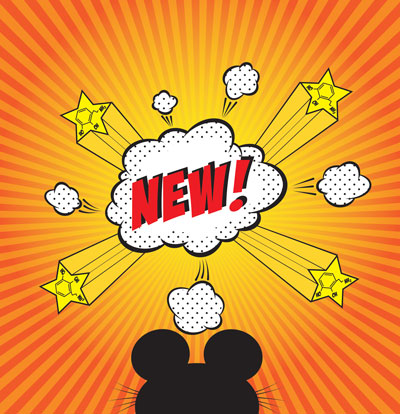Novelty and learning
A fundamental type of learning, known as associative learning, is commonly observed in animals and humans. It involves the association of a stimulus or an action with a positive or negative outcome. Associative learning underlies many of our every-day behaviors: we reward children for doing their homework, for example, or limit their TV time if they misbehave.
Scientists have known since the 1960s that novelty facilitates associative learning. However, the mechanisms behind this phenomenon remained unknown.
“Previous work suggested that novelty might activate the dopamine system in the brain. Therefore we thought that dopamine activation might also promote associative learning,” says Prof. Sebastian Haesler, who led the study.

Sniffing out novelty
To demonstrate that novelty indeed activates dopamine neurons, the researchers exposed mice to both new and familiar smells.
“When mice smell a novel stimulus, they get very excited and start sniffing very rapidly. This natural, spontaneous behavior provides a great readout for novelty perception,” explains Dr. Cagatay Aydin, postdoc in the group of Sebastian Haesler. With the mouse experiments, the team confirmed dopamine neurons were activated by new smells, but not by familiar ones.
In a second step, the mice were trained to associate novel and familiar smells with reward.
“When we specifically blocked dopamine activation by novel stimuli in only a few trials, learning was slowed down. On the other hand, stimulating dopamine neurons during the presentation of familiar stimuli accelerated learning,” says Joachim Morrens, PhD student in the group.
The value of novelty
The findings demonstrate that dopamine activation by novel stimuli promotes learning. They further provide direct experimental support for a group of theoretical frameworks in computer science, which incorporate a ‘novelty bonus’ to account for the beneficial effect of novelty. Incorporating such a bonus can speed up machine learning algorithms and improve their efficiency.
From a very practical perspective, the results remind us to break our routine more often and seek out novel experiences to be better learners.
HFSP funding was instrumental to complete this important but risky study, says Haesler: "When I started my lab, the Career Development Award from the Human Frontier Science Program strongly encouraged me to continue to pursue my work on novelty and dopamine, even after receiving negative feedback from other funding sources who deemed the work as too far out and risky. Finally, our findings confirm that it was worth taking the risk and I am extremely grateful to HFSP for supporting me.”


































